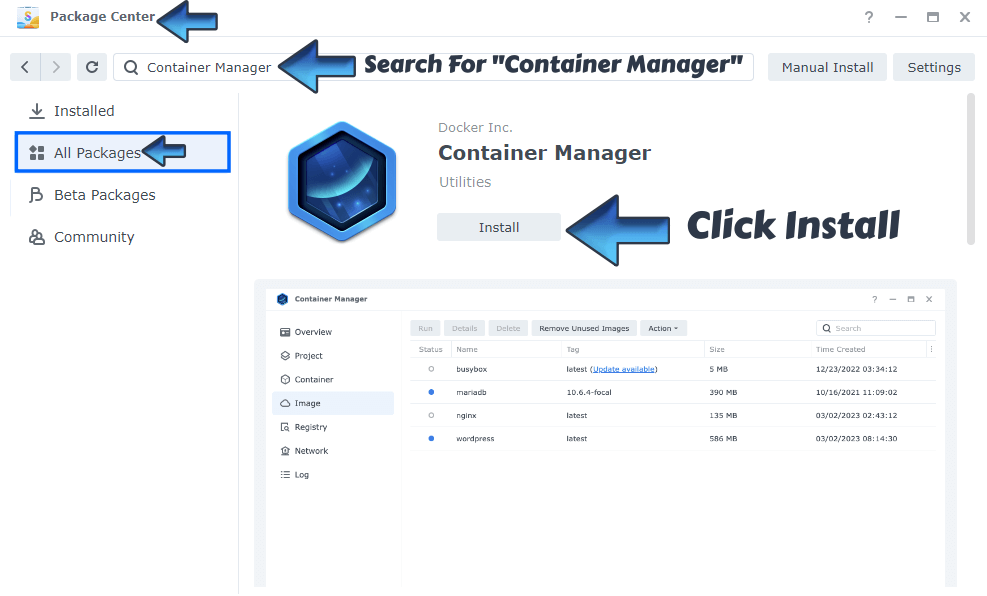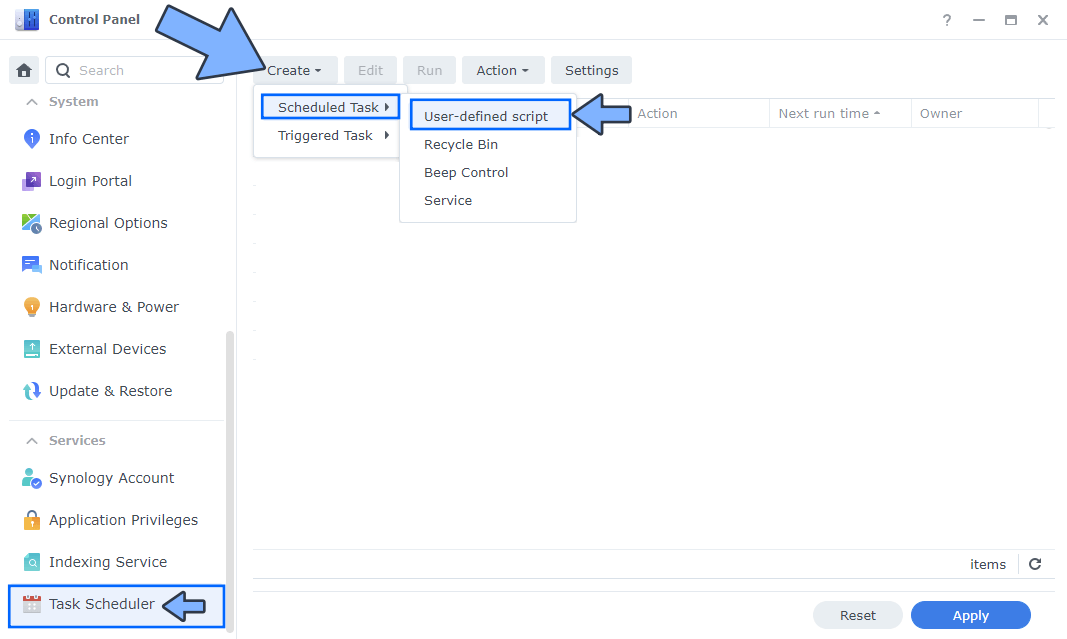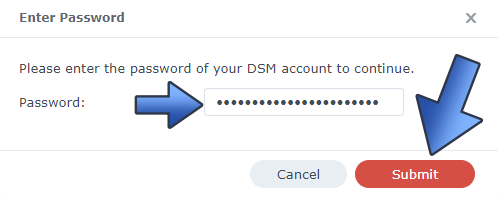![]()
Speedtest Track is a program that runs a speedtest check every hour and graphs the results in a fancy way. The back-end is written in Laravel and the front-end uses Filament. It uses Ookla’s Speedtest cli to get the data and uses Chart.js to plot the results. Are you tired of complicated guides? Do you want something quick and easy? Well today I will teach you how to install Speedtest Tracker on your Synology NAS in less than 30 seconds directly through the Task Scheduler option. It’ll be over in a couple of seconds and it’s essentially child’s play. No terminal required.
⚠️Attention: The SQlite database is no longer supported by the newer SpeedTest Tracker version. You can continue to use SpeedTest Tracker with version 0.11.22 which is the latest version available with SQlite support. Note: If you want to install the LATEST SpeedTest Tracker with Postgres as database, follow my guide on how to Install SpeedTest Tracker with Portainer.
STEP 1
Please Support My work by Making a Donation.
STEP 2
Install Container Manager via Synology “Package Center”. If you run an older DSM version (under 7.2), search for Docker instead of Container Manager.

STEP 3
Go to File Station and open the docker folder. Inside the docker folder, create one new folder and name it speedtest. Follow the instructions in the image below.
Note: Be careful to enter only lowercase, not uppercase letters.
![]()
STEP 4
Go to Control Panel / Task Scheduler / Create / Scheduled Task / User-defined script. Follow the instructions in the images below.

STEP 5
Once you click on User-defined script, a new window will open. Follow the instructions below:
- General: In the Task field type in Install Speedtest Tracker. Uncheck “Enabled” option. Select root User.
- Schedule: Select Run on the following date then select “Do not repeat“.
- Task Settings: Check “Send run details by email“, add your email then copy paste the code below in the Run command area. After that click OK.
docker run -d --name=speedtest \ -p 8999:80 \ -p 8443:443 \ -p 8995:9000 \ -e PUID=1026 \ -e PGID=100 \ -v /volume1/docker/speedtest:/config \ --restart always \ ghcr.io/alexjustesen/speedtest-tracker:v0.11.17
Note: Before you paste the code above in the Run command area below, change the value numbers for PUID and PGID with your own values. (Follow my step by step guide on how to do this.)
![]()
STEP 6
After you click OK on STEP 5 a new warning pop up window will open. Click OK.
![]()
After you click OK, type in your DSM Password then click Submit. Follow the instructions in the image below.

STEP 7
After you click Submit on STEP 6, select your “Install Speedtest Tracker” Task, then click the “Run” tab. You will be asked to run Install Speedtest Tracker – click OK. Follow the instructions in the image below.
![]()
STEP 8
🟢Please Support My work by Making a Donation. Almost 99,9% of the people that install something using my guides forget to support my work, or just ignore STEP 1. I’ve been very honest about this aspect of my work since the beginning: I don’t run any ADS, I don’t require subscriptions, paid or otherwise, I don’t collect IPs, emails, and I don’t have any referral links from Amazon or other merchants. I also don’t have any POP-UPs or COOKIES. I have repeatedly been told over the years how much I have contributed to the community. It’s something I love doing and have been honest about my passion since the beginning. But I also Need The Community to Support me Back to be able to continue doing this work.
STEP 9
The installation process can take up to a few seconds/minutes. It will depend on your Internet speed connection. Now open your browser and type in http://Synology-ip-address:8999 Type in the default Email address and Password, then click Sign in.
![]()
STEP 10
At the top right of the page switch to dark mode, then click Queue Speedtest to start your first speedtest. Follow the instructions in the image below.
![]()
STEP 11
Change the default Email address and Password with your own credentials. On the left sidebar click Users, then add your credentials in the fields and click Save changes. Follow the instructions in the image below.
![]()
Note: If you want to run the Speedtest Tracker container over an HTTPS check How to Run Docker Containers Over HTTPS.
Note: Can I run Docker on my Synology NAS? See the supported models.
Note: How to Back Up Docker Containers on your Synology NAS.
Note: Find out how to update Speedtest Tracker container with the latest image.
Note: How to Free Disk Space on Your NAS if You Run Docker.
Note: How to Schedule Start & Stop For Docker Containers.
Note: How to Activate Email Notifications.
Note: How to Add Access Control Profile on Your NAS.
Note: How to Change Docker Containers Restart Policy.
Note: How to Use Docker Containers With VPN.
Note: Convert Docker Run Into Docker Compose.
Note: How to Clean Docker.
Note: How to Clean Docker Automatically.
Note: Best Practices When Using Docker and DDNS.
Note: Some Docker Containers Need WebSocket.
Note: Find out the Best NAS Models For Docker.
Note: Activate Gmail SMTP For Docker Containers.
This post was updated on Friday / August 29th, 2025 at 5:54 PM
